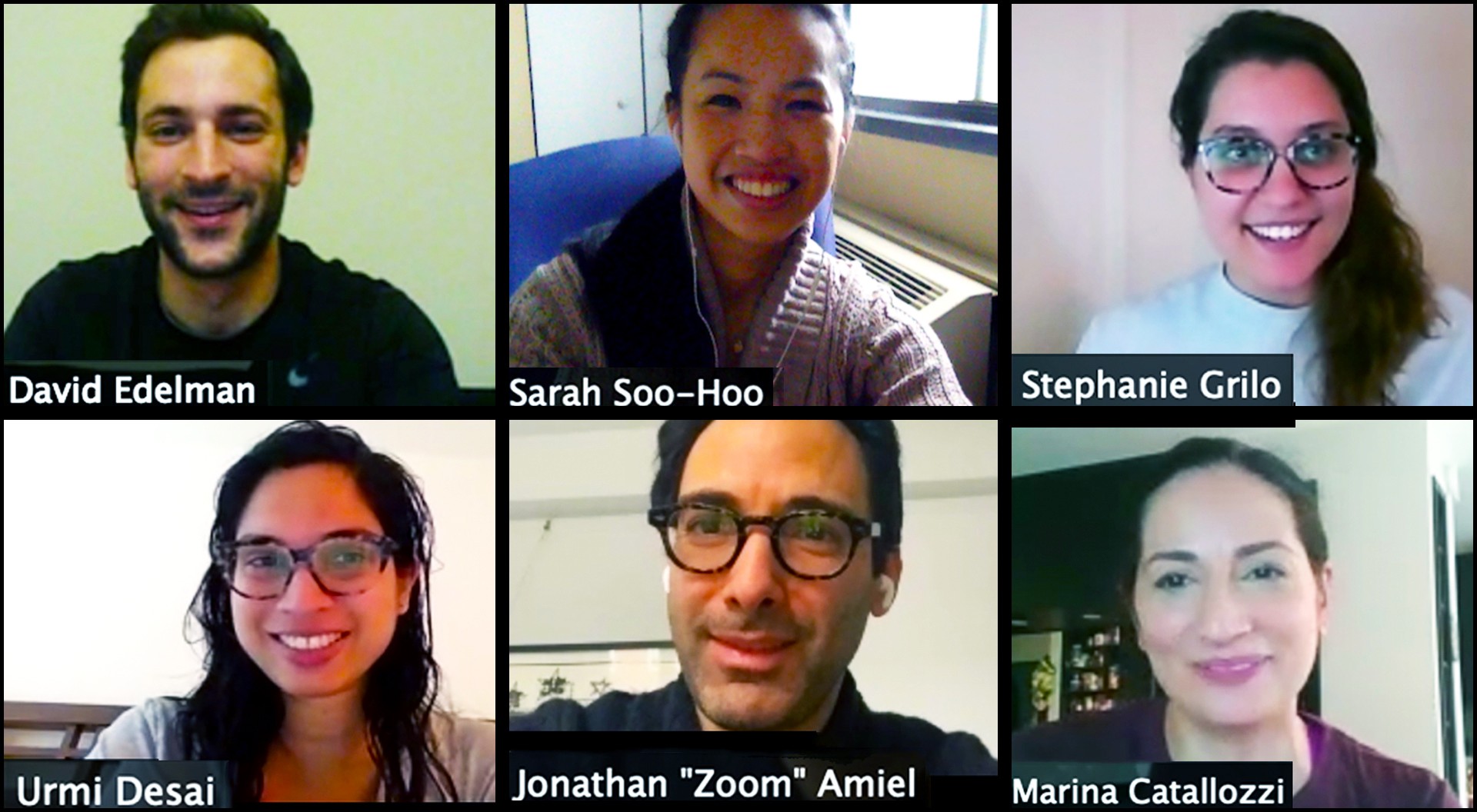Columbia Students Mobilize to Help Frontline Health Care Workers and Community
As COVID-19 crisis deepens, efforts include making face shields, staffing a hotline and following up with patients.

In early March, Columbia’s Vagelos College of Physicians and Surgeons announced the suspension of all in-person extracurricular activities and teaching in clinical environments. COVID-19 was beginning to spread across the United States, and administrators were quick to implement measures to protect student safety and the public welfare.
For medical student Sarah Soo-Hoo, it was a jarring wakeup call. She had been helping to manage five student-run clinics serving vulnerable populations in Upper Manhattan. These clinics would now have to close. She worried about the effect this would have on students, who were devoted to their work, and on patients, who needed these vital health care resources. A number of students and faculty in Columbia's health sciences schools, including Soo-Hoo and fifth-year medical student David Edelman, teamed up to help bridge the gap.
COVID-19 Student Service Corps
Calls with administrators and clinicians turned into conferences with faculty across the Columbia University Irving Medical Center (CUIMC). Discussions around continuity of care for clinic patients expanded into conversations about the best ways for students to help health care workers respond to the COVID-19 crisis. They identified areas with the greatest unmet needs and devised an infrastructure that would deploy students—virtually—to meet them. Projects were to be specifically responsive to the needs of the health system, interprofessional in nature and embedded in a learning process for student volunteers. Within a few days, the students had a mission statement, five projects and a toolkit to help other schools launch similar volunteer programs. The COVID-19 Student Service Corps (CSSC) was born, with Soo-Hoo and Edelman as its co-chairs.
.@Columbia medical students have formed the #COVID19 Student Service Corps to lend a virtual hand to fellow health professionals. Read about their efforts and how you can get involved: https://t.co/W7WHLbXXwP cc: @ColumbiaCssc @CsscNational pic.twitter.com/FdQC23GdIE
— Columbia Med School (@ColumbiaPS) March 24, 2020
Word of the corps spread quickly, and 24 hours later, nearly 300 medical student volunteers had signed on. “It was clear that students were itching for the chance to join the fight against COVID and were willing to contribute in any capacity they could,” said Soo-Hoo, who will graduate next year with a joint MD/MBA degree.
The program was quickly rolled out to schools at CUIMC and now has more than 1,300 volunteers from across Columbia’s medical center, Graduate School of Arts and Sciences and School of Engineering. Chapters at the University of North Carolina and the University of Washington followed, and CSSC has shared its toolkit—which includes infrastructure, project and organizational guidance—with more than 30 institutions around the world.
Today, the program is focused on adapting, sometimes overnight, to the rapidly changing needs of health care systems on the front lines of the crisis. Right now, there is overwhelming demand for the community hotline, which provides up-to-date COVID-19 related information and guidance for members of the public.
All-star leaders at work! We’re up to 45 faculty and student project leaders and more than 700 volunteers signed up!!! 🥰🥰🥰 pic.twitter.com/DyDxwvfaiy
— COVID-19 Student Service Corps: Columbia Chapter (@ColumbiaCssc) March 22, 2020
Staffed by corps volunteers, the hotline is fielding more than 1,600 calls a day, many from individuals who have been referred by their health care providers. There is also a pressing need for supervised remote patient monitoring as hospitals work to discharge those who have received urgent medical care as quickly and safely as possible. To support these efforts, CSSC has partnered with departments across NewYork-Presbyterian/ Columbia University Irving Medical Center to check on recently discharged patients and determine whether they require follow-up care.
Of all the initiatives that CSSC and its volunteers have put in place, there is one of which they are particularly proud. To date, the program has secured thousands of personal protective equipment donations, including N95 masks, face shields and isolation gowns. The group recently announced a partnership with Columbia’s Zuckerman Institute and the School of Engineering to work on manufacturing equipment internally using 3D printing.
“Many of the frontline workers who risk their lives on a daily basis are our friends, family and loved ones,” Soo-Hoo said. “It’s been particularly rewarding to know that we’re doing everything we can to help keep them safe.”